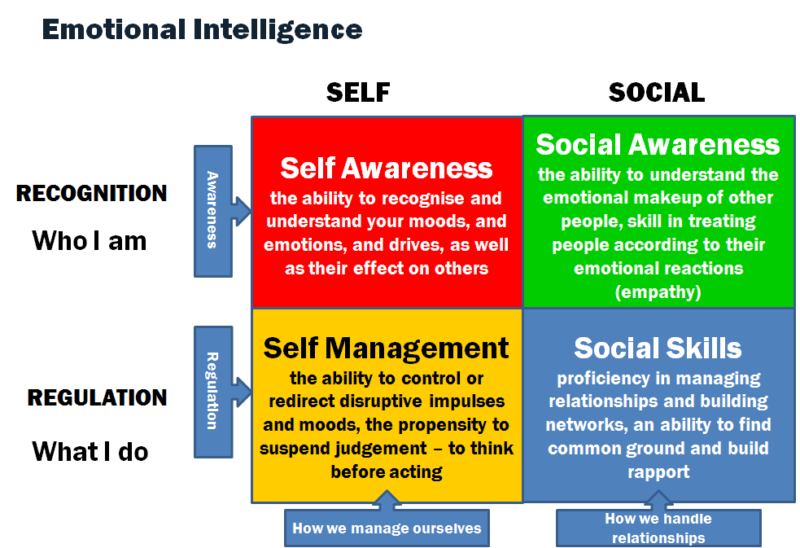Why Founders Need Emotional Intelligence

In the fast-paced world of startups, where success hinges on innovation, determination, and resilience, there’s a critical but often overlooked factor that can determine the trajectory of a company: Emotional Quotient (EQ), also called Emotional Intelligence. While technical skills and industry knowledge are essential, EQ plays a profound role in shaping how founders navigate challenges, build teams, and foster sustainable growth.
What is Emotional Intelligence?
Emotional Intelligence or Emotional Quotient, encompasses the ability to recognize, understand, and manage our own emotions, as well as the emotions of others. Unlike IQ (Intelligence Quotient), which measures cognitive abilities and technical prowess, EQ focuses on the softer skills that define effective leadership and interpersonal dynamics.
Research indicates that EQ can be two to four times more important than IQ in determining success, particularly in environments where collaboration, communication, and adaptability are paramount—characteristics that define the startup ecosystem.
The Four Quadrants of Emotional Intelligence

Daniel Goleman, a renowned psychologist, categorizes EQ into four core components:
- Self-awareness: The foundation of emotional intelligence, self-awareness involves understanding one’s emotions, strengths, weaknesses, and values. For founders, this means recognizing personal triggers and responses under stress, crucial for making sound decisions and maintaining composure during turbulent times.
- Self-management: This quadrant emphasizes the ability to control impulses, adapt to changing circumstances, and remain resilient in the face of adversity. Founders who excel in self-management can lead effectively, maintain focus on long-term goals, and inspire confidence in their teams.
- Social awareness: Empathy is at the heart of social awareness—it involves sensing others’ emotions, understanding their perspectives, and navigating social dynamics adeptly. Startup leaders with high social awareness build strong, cohesive teams, foster a culture of inclusivity, and forge meaningful connections with stakeholders.
- Relationship management: Effective relationship management entails nurturing relationships, inspiring and influencing others positively, and resolving conflicts constructively. Founders skilled in relationship management cultivate loyal teams, attract investors, and build enduring partnerships critical for business growth.
The Impact of EQ on Startup Success
In the competitive startup landscape, where uncertainty is the norm, emotional intelligence becomes a potent differentiator. Here’s how EQ influences various facets of startup success:
- Team Dynamics: Founders with high EQ can assemble diverse teams, leverage individual strengths, and mitigate conflicts effectively, fostering a collaborative and productive work environment.
- Customer Relationships: Understanding and responding to customer emotions and needs can differentiate a startup’s product or service in the market, driving customer loyalty and advocacy.
- Investor Relations: Investors often assess a founder’s EQ during pitches and interactions. Founders who demonstrate strong EQ inspire confidence, showcase resilience in navigating challenges, and articulate a compelling vision that aligns with investor expectations.
- Decision-making: Self-awareness and self-management empower founders to make informed decisions, even under pressure. By understanding their emotional responses, founders can avoid impulsive actions and instead chart strategic paths forward.
In the startup world, we tend to idolize technical prowess—where you studied, what you know, and your role in the company. But let’s not overlook the soft skills. They’re harder to teach but oh-so-critical for success. Think of EQ as your secret sauce; it can be more impactful than your IQ when it comes to thriving in the startup community.
Latest
Subscribe To Our Newsletter
We’ll send you the best of our stories and no spam! Promise!




